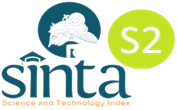Analysis of Biology Teachers' Technological Pedagogical Knowledge at the Sekolah Penggerak in Makassar
DOI:
https://doi.org/10.33477/bs.v13i1.6934Abstract
The learning paradigm of the 21st century demands that educators have the ability to use technology, information, and communication. Teachers' understanding of digital technology in classrooms is becoming increasingly important in education. The quality of education is influenced by the competence of the teacher. Teachers who adapt to technological developments provide more relevant and effective learning. Technological Pedagogical Knowledge (TPK) is a set of understandings about how to implement change in learning using technology as its support. It happens through the interaction of pedagogical and technological approaches. This research is descriptive quantitative aimed at providing an overview of knowledge Technological Pedagogical Knowledge Teacher of Biology at the Sekolah Penggerak in Makassar. The sample used was 13 biology teachers at the Sekolah Penggerak in Makassar. Data is collected through self-assessment of the respondents. The results of the study showed that the average percentage of Technological Knowledge (TK) aspects of 88.5% in the category was very good. The average percentage of Pedagogical Knowledge (PK) aspects of 87.5% in the category was very good. The average percentage of Technological Pedagogical Knowledge (TPK) aspects of 83.3% in the category was very good. In general, the Knowledge of Technological Pedagogical Knowledge Teacher of Biology at the Sekolah Penggerak in Makassar is in the very good category with a percentage of 86.9%. One of the key factors of the high value of Technological Pedagogical Knowledge (TPK) Teacher of Biology at the Sekolah Penggerak in Makassar is the reinforcement effort carried out at all levels of leadership, including the Head of School, School Supervisor, Owner, and Teacher which is seen from the presence of intensive training program and one-to-one support with expert trainers provided by the Ministry of Education and Culture.
Keywords: Knowledge, Pedagogy, Technology
References
Adiarta, A. D. G, & Divayana, H (2019), Pengembangan Soal Tes Digital Matakuliah Asesmen dan Evaluasi Menggunakan Aplikasi Wondershare. Jurnal Pendidikan Teknologi dan Kejuruan, 16(2), 287-297.
Ashriah, S., Muis, Abd., & Arsal, A. F. (2020). Keterampilan Berpikir Kreatif Peserta Didik yang Diajar Melalui Model Pembelajaran Pjbl dan Model Konvensional Materi Pencemaran Lingkungan. Jurnal Biology Teaching and Learning, 3(1), 52–59.
Bahri, A., Hidayat, W., & Muntaha, A. Q. (2018). Penggunaan Media Berbasis AutoPlay Media Studio 8 untuk Meningkatkan Aktivitas dan Hasil Belajar Siswa: Sebuah Inovasi Media Pembelajaran. Proceeding Biology Education Conference, 15(1), 394–402.
Bugti, F., Dar, F., & Sarhandi, P. S. A. (2022). Teachers’self-Perceptions for Technology Integration in Teaching Through the Lens of TPACK Framework. Pakistan Journal of Educational Research, 5(2), 183–200.
Hanik, E. U., Puspitasari, D., Safitri, E., Firdaus, H. R., Pratiwi, M., & Inayah, R. N. (2022). Integrasi Pendekatan TPACK (Technological, Pedagogical, Content Knowledge) Guru Sekolah Dasar SIKL dalam Melaksanakan Pembelajaran Era Digital. JEID: Journal of Educational Integration and Development, 2(1), 15–27.
Ismail, & Muis, A. (2021). Analisis Pengetahuan Tecknological Pedagogical Content Knowledge Calon Guru Biologi. Seminar Nasional Hasil Penelitian 2021, 1351–1358.
Thohir, M. A., Yuliati, L., Ahdhianto, E., Untari, E., & Yanti, F. A. (2021). Exploring the Relationship between Personality Traits and TPACK-Web of Pre-service Teacher.
Downloads
Published
Issue
Section
License
Copyright (c) 2024 BIOSEL (Biology Science and Education): Jurnal Penelitian Science dan Pendidikan

This work is licensed under a Creative Commons Attribution-NonCommercial 4.0 International License.
Authors who publish with this journal agree to the following terms: Authors retain copyright and grant the journal right of first publication with the work simultaneously licensed under a Creative Commons Attribution License that allows others to share the work with an acknowledgement of the work's authorship and initial publication in this journal. Authors are able to enter into separate, additional contractual arrangements for the non-exclusive distribution of the journal's published version of the work (e.g., post it to an institutional repository or publish it in a book), with an acknowledgement of its initial publication in this journal. Authors are permitted and encouraged to post their work online (e.g., in institutional repositories or on their website) prior to and during the submission process, as it can lead to productive exchanges, as well as earlier and greater citation of published work.














